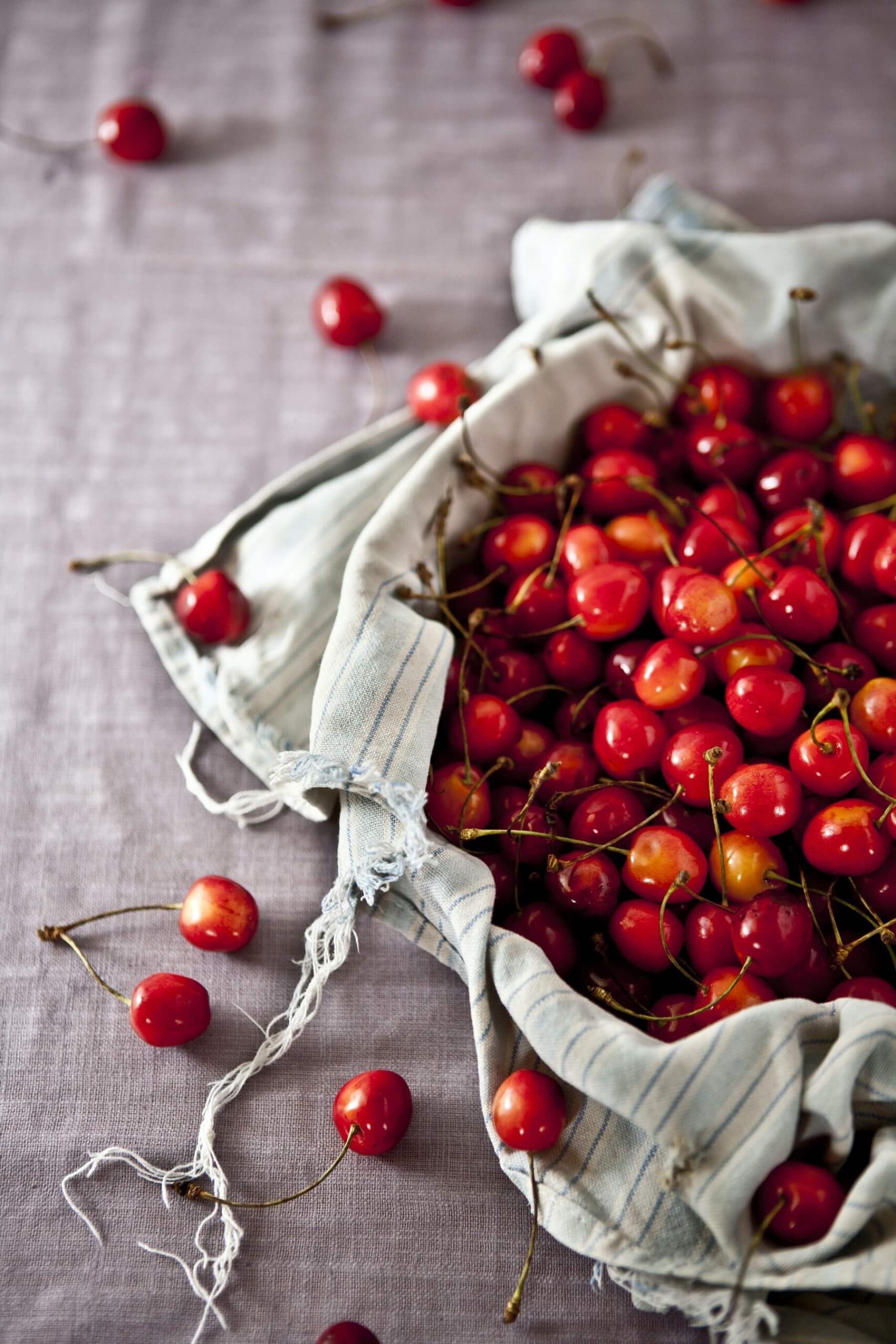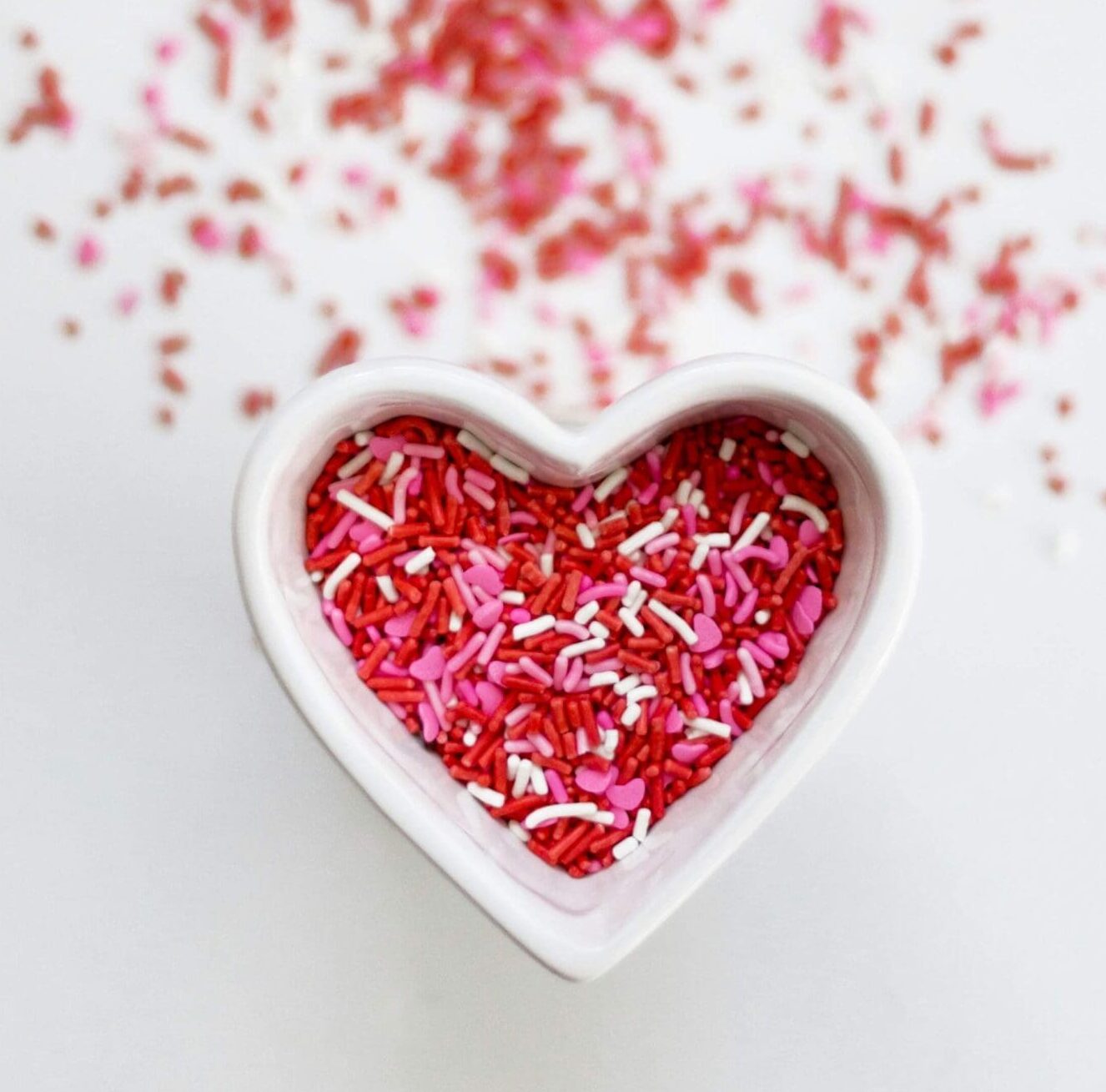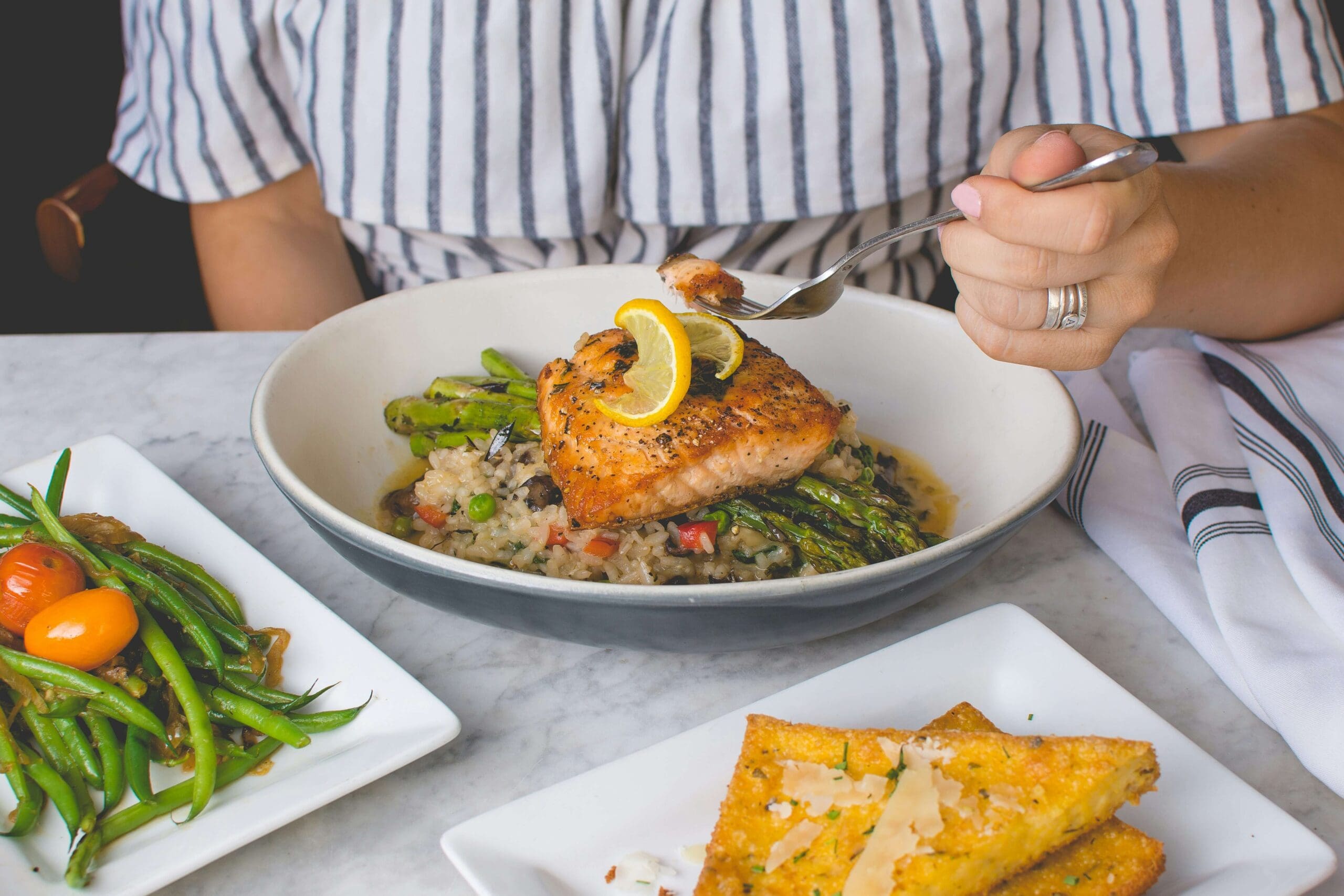Standing in the produce aisle can feel overwhelming when you’re trying to make the best choices for cancer prevention. You see endless options, conflicting advice swirling in your mind, and that familiar pressure to buy everything organic.
Maybe you’ve been told to avoid certain foods entirely, or perhaps you’re just tired of the confusion about what actually helps reduce cancer risk.
Here’s what I want you to know: seasonal eating makes cancer prevention simpler, more affordable, and honestly more enjoyable.
When you choose produce that’s in season, you’re getting fruits and vegetables at their peak nutritional power, bursting with the cancer-fighting compounds your body needs.
You don’t need a complicated plan or an overwhelming grocery list. You just need to understand which foods are freshest right now and how to make them work for your life.
Let me show you how seasonal eating fits into a realistic, sustainable cancer prevention lifestyle.
Get Your Free Clean Scan Plan!
Feeling overwhelmed about making the right food choices for cancer prevention? Download the Clean Scan Plan to gain clarity and confidence about what to eat, backed by science and designed specifically for cancer survivors.
Why Seasonal Eating Matters for Cancer Prevention?
Seasonal eating means choosing fruits and vegetables when they’re naturally growing in your region. As your oncology dietitian, I see clients transform their relationship with food when they focus on what’s fresh and in season.
The science backs this up: diet may be related to up to 50% of cancers, which means your food choices genuinely matter for prevention. This is exactly why I created my 5 essential cancer prevention eating tips that my clients use every single day.
In-season produce contains higher levels of phytochemicals, the plant compounds that actively fight cancer cells, reduce inflammation, and protect your DNA from damage.
When fruits and vegetables are picked at peak ripeness and travel shorter distances to your plate, they retain more of these protective compounds.
One of my clients recently told me, “I used to stress about every single food choice. Now I just hit the farmers market on Saturday mornings and build meals around what’s fresh. My scans have been clear for three years, and I finally feel like I’m living again, not just surviving.”
If you’re ready to stop guessing and get expert guidance tailored to you, apply for VIP 1:1 oncology nutrition coaching with me today.
3 Science-Backed Benefits of Eating Seasonally
Let me break down exactly why seasonal eating should be part of your cancer prevention strategy. These aren’t just nice-to-know facts.
They’re the reasons I recommend seasonal eating to every single client I work with, whether they’re in treatment, post-treatment, or focused on prevention.
Better Taste and Higher Nutrient Density
Remember buying blueberries in January and feeling disappointed by their bland, almost flavorless taste? That’s because out-of-season produce is often picked before peak ripeness and loses nutrients during long-distance shipping.
Fresh, seasonal produce tastes dramatically better and contains higher concentrations of vitamins, minerals, and cancer-fighting phytochemicals. When food tastes good, you naturally eat more of it, which is exactly what we want for cancer prevention.
Here’s the good news: frozen produce picked at peak season and frozen immediately retains nearly all its nutrients. As your oncology dietitian, I tell clients that frozen berries in winter can be just as nutritious as fresh berries in summer, because they were frozen when their nutrient content was highest. The key is choosing produce at its peak, whether that means buying fresh
More Affordable for Your Budget
Seasonal produce follows basic supply and demand. When local farms have abundant harvests, prices drop significantly. You can fill your cart with cancer-fighting foods without breaking your budget.
As your oncology dietitian, I remind clients that cancer prevention doesn’t require expensive supplements or specialty foods. Simple, seasonal vegetables and fruits give you the most protection.
Peak Phytochemical Content for Maximum Cancer Protection
This is where the real magic happens. Phytochemicals are natural plant compounds that reduce inflammation, strengthen the immune system, and prevent damaged cells from reproducing. Seasonal produce at peak ripeness contains the highest levels of these cancer-fighting compounds.
For example, a diet high in lycopene could prevent 11% of prostate cancer cases, and lycopene is most concentrated in summer tomatoes picked at peak ripeness. This isn’t just about eating vegetables. It’s about eating them when they have the most power to protect you.
Take Control of Your Cancer Prevention Journey
The Clean Scan Plan has helped thousands of survivors build confidence around food choices and cancer prevention. Get instant access to this science-backed resource designed specifically for your cancer journey.
Understanding Phytochemicals: Your Body’s Cancer-Fighting Compounds
If you’ve ever wondered what actually makes fruits and vegetables so powerful for cancer prevention, phytochemicals are the answer.
These natural plant compounds are your body’s first line of defense against cancer development, and they work in ways that no supplement can replicate.
What Are Phytochemicals and How They Protect Against Cancer?
Phytochemicals are natural chemicals found in plants that work like a defense system for your cells. They’re not vitamins or minerals, but they’re just as important for cancer prevention.
These compounds protect your cells from DNA damage, help your body eliminate carcinogens, and even trigger cancer cells to self-destruct through a process called apoptosis.
As your cancer dietitian, I explain phytochemicals in simple terms: they’re your body’s cleanup crew. They patrol your system, neutralizing harmful substances before they can cause problems.
Different colors of produce contain different types of phytochemicals, which is why eating a rainbow of seasonal foods gives you the best protection. This is one of the key principles I teach in all my programs.
Antioxidants, Anthocyanins, and Anti-Inflammatory Plant Compounds
Three major types of phytochemicals deserve your attention for cancer prevention.
- First, antioxidants protect your cells from free radical damage that can lead to cancer.
- Second, anthocyanins give berries their deep colors and have powerful anti-cancer effects.
- Third, anti-inflammatory compounds reduce chronic inflammation linked to cancer development.
One of my survivors shared, “I used to think I needed expensive supplements to prevent recurrence.
Now I understand that the blueberries and tomatoes at my local farm stand are doing more for my health than any pill ever could. That realization was freeing.” That’s exactly the mindset shift I want for you.
Cancer-Fighting Foods by Color: A Seasonal Guide
Different colors signal different protective compounds. Here’s how to maximize your cancer-fighting power by eating the rainbow.
As your oncology dietitian, I teach clients to think about color first when building their plates. It’s the simplest way to ensure you’re getting a variety of phytochemicals.
Red Produce: Lycopene and Anthocyanins
Tomatoes, watermelon, strawberries, red bell peppers, and cherries contain lycopene and anthocyanins. Lycopene may help reduce your risk of prostate, stomach, and breast cancers.
Pro tip from your oncology dietitian: Cooked tomatoes have higher bioavailable lycopene than raw ones, so make that summer marinara sauce and know you’re actively supporting your cancer prevention goals.
Orange and Yellow Produce: Beta-Carotene Power
Carrots, sweet potatoes, peaches, apricots, cantaloupe, and mangoes are rich in beta-carotene, which your body converts to vitamin A. This nutrient supports immune function and may help prevent DNA damage that leads to cancer.
I had a client who started adding roasted sweet potatoes to her weekly meal prep, and she told me it became her favorite comfort food that also happened to be cancer-protective. That’s what I mean when I say cancer prevention should feel good, not restrictive.
Green Produce: Chlorophyll and Cruciferous Benefits
Kale, broccoli, Brussels sprouts, cucumber, asparagus, and leafy greens contain chlorophyll and, in cruciferous vegetables, special compounds called indoles and glucosinolates.
These may help protect against breast, prostate, and colon cancers. Check out my detailed guide on why leafy greens are cancer-fighting champions and how to prepare them in ways that actually taste delicious.
Blue and Purple Produce: Antioxidant Champions
Blueberries, eggplant, plums, grapes, and figs are colored by anthocyanins, powerful antioxidants that protect cells from cancer-causing damage. Research links blueberries to improved memory function and healthy aging.
As your cancer dietitian, I remind clients that these beautiful deep-colored fruits and vegetables are nature’s way of signaling high antioxidant content. The richer the color, the more protection you’re getting.
White and Brown Produce: Allicin and Immune Support
Garlic, onions, cauliflower, mushrooms, and ginger contain allicin, which may help lower cholesterol, blood pressure, and reduce stomach cancer risk. Discover more about garlic’s cancer-fighting properties and why I recommend adding it to almost every savory dish you make.
Summer’s Cancer-Fighting Seasonal Produce List
As your oncology dietitian, I have an exciting simple guide for summer produce shopping. These items are typically in season during warmer months and offer maximum cancer-fighting benefits. Print this list and take it to your farmers market or grocery store:
- Apples
- Apricots
- Avocados
- Bananas
- Beets
- Bell Peppers
- Blackberries
- Blueberries
- Cantaloupe
- Carrots
- Celery
- Cherries
- Corn
- Cucumbers
- Eggplant
- Garlic
- Green Beans
- Fresh Herbs
- Honeydew Melon
- Lemons
- Lima Beans
- Limes
- Mangos
- Okra
- Peaches
- Plums
- Raspberries
- Strawberries
- Summer Squash
- Tomatillos
- Tomatoes
- Watermelon
- Zucchini
Your Next Step: Building a Cancer Prevention Lifestyle
Seasonal eating isn’t just about individual foods. It’s about building a sustainable approach to cancer prevention that feels good in your body and fits into your real life.
As your oncology dietitian, I want you to remember that no single food prevents cancer by itself. It’s the pattern of eating colorful, plant-based foods consistently over time that reduces your risk.
In The Cancer Prevention Bundle, my clients don’t just learn about cancer prevention. They live it with confidence and clarity. They stop second-guessing every food choice and start enjoying meals again. They build habits that last because those habits fit into their actual lives, not some impossible standard of perfection.
One client recently told me, “For the first time in years, I’m not afraid of food. I know what to choose, I trust my body, and I feel like myself again.” That’s the transformation I want for you and that my program will give you.
Ready to Feel Confident About Your Cancer Prevention Choices?
Join thousands of survivors who’ve transformed their relationship with food through the Clean Scan Plan. This free guide provides everything you need to eat for cancer prevention without fear or confusion.
Yes! Send Me the Free Clean Scan Plan
References
- https://lluh.org/patients-visitors/health-wellness/blog/your-seasonal-guide-cancer-fighting-foods
- https://www.roswellpark.org/cancertalk/202506/benefits-eating-season-produce
- https://www.henryford.com/blog/2020/07/seasonal-eating-for-cancer-prevention
- https://www.cancer.gov/about-cancer/causes-prevention/risk/diet/cruciferous-vegetables-fact-sheet
- https://www.mdanderson.org/cancerwise/36-foods-that-can-help-lower-your-cancer-risk.h00-159774078.html
- https://www.cancer.org/cancer/risk-prevention/diet-physical-activity/acs-guidelines-nutrition-physical-activity-cancer-prevention/guidelines.html
- https://www.aicr.org/cancer-prevention/food-facts/






